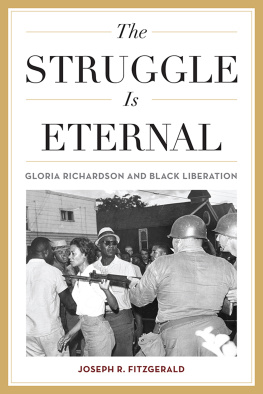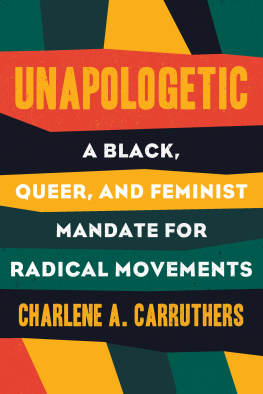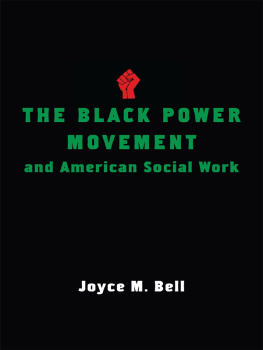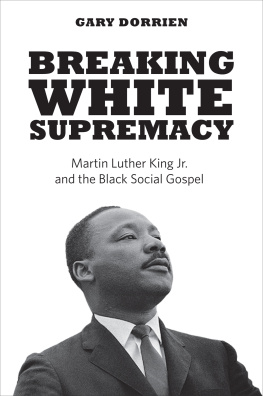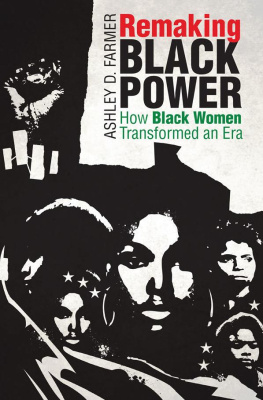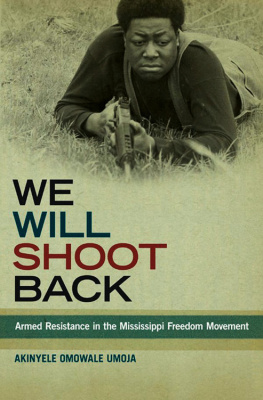www.upress.state.ms.us
The University Press of Mississippi is a member of the Association of American University Presses.
Copyright 2016 by University Press of Mississippi
All rights reserved
Manufactured in the United States of America
First printing 2016
Library of Congress Cataloging-in-Publication Data
Names: Corrigan, Lisa M., author.
Title: Prison power : how prison influenced the movement for Black liberation / Lisa M. Corrigan.
Description: Jackson : University Press of Mississippi, [2016] | Series: Race, rhetoric, and media series | Includes bibliographical references and index.
Identifiers: LCCN 2016008491 (print) | LCCN 2016042417 (ebook) | ISBN 9781496809070 (cloth : alkaline paper) | ISBN 9781496809087 (epub single) | ISBN 9781496809094 (epub institutional) | ISBN 9781496809100 (pdf single) | ISBN 9781496809117 (pdf institutional)
Subjects: LCSH: African AmericansCivil rightsHistory20th century. | Civil rights movementsUnited StatesHistory20th century. | Black powerUnited StatesHistory20th century. | African American menEffect of imprisonment onHistory20th century. | ImprisonmentPolitical aspectsUnited StatesHistory20th century. | African AmericansPolitics and government20th century. | United StatesRace relationsHistory20th century. | BISAC: SOCIAL SCIENCE / Ethnic Studies / African American Studies. | POLITICAL SCIENCE / Political Freedom & Security / Civil Rights. | SOCIAL SCIENCE / Archaeology.
Classification: LCC E185.615 .C675 2016 (print) | LCC E185.615 (ebook) | DDC
323.1196/073dc23
LC record available at https://lccn.loc.gov/2016008491
British Library Cataloging-in-Publication Data available
ACKNOWLEDGMENTS
This book would not have been possible without many colleagues, collaborators, co-conspirators, and friends who helped along the way. Thanks first to Tom Kane and Ted Windt, who spurred my interest in Cold War politics and the dialectic between presidents and protestors. These men taught me how to think and teach about politics in ways that continue to enrich both my students and me. Along with the brilliant Kellie Robertson, they also steered me toward Shawn J. Parry-Giles, under whose guidance this book began. Im deeply indebted to her primarily for her patience. Full stop. But Im also appreciative of her time, feedback, and advice. She taught me how to work. And she didnt try to curb my (intellectual) risk-taking, for which I am deeply grateful.
The University of Maryland Communication Department and the McKeldin Library provided me with support while I was writing the initial draft of this project. In the intervening years between this books inception and its completion, I was quite lucky to learn from a wonderful number of talented professors including Elsa Barkley Brown, Robert N. Gaines, Meyer Kestnbaum, Katie King, Trevor Parry-Giles, Carla Peterson, Mari Boor Tonn, and Mary Helen Washington.
Im also thankful to Claude Marks, director of the Freedom Archives in San Francisco, for his invitation to work in the archives, and to Noelle Hanrahan, whose audio archives of her interviews with Mumia Abu-Jamal were so helpful in the early draft of this project.
The University of Arkansas provided me with institutional support and funding while I reshaped this project and edited the final draft. Thanks to my colleagues Myria Allen, Lindsey Aloia, Trish Amason, Steve Boss, Bob and Laurie Brady, Rob Brubaker, Sidney Burris, Lynda Coon, Nick Copeland, Lauren DeCarvalho, Pearl Dowe, David Fredrick, Tom Frentz, Jennifer Hoyer, Christine Labuski, Susan Marren, Angie Maxwell, Alexandra Pappas, Mike Pierce, Tom Rosteck, Laurent Sacharoff, Todd Shields, Kathy Sloan, Steve and Lindsley Smith, Trish Starks, Dot Stephens, Brett Sterling, Raja Swamy, Ted Swedenburg, Ron Warren, and Jan and Rob Wicks.
I worked through the ideas in this book at many conferences and workshops including the National Communication Association conferences, the Roots, Race and Resistance Conference, the Mid-Atlantic Popular/American Culture Association convention, the Cultural Studies Association convention, the Southern States Communication Association conventions, the Rhetoric Society of America conventions, the Organization for the Study of Communication, Language, and Gender conference, and the Rethinking Prisons conference where moderators, fellow panelists, and audience members helped me shape the ideas in this book.
Participating in Northwestern Universitys Doctoral Conference on Dissent helped me incubate these ideas. In particular, thanks to Angela Ray, for her thoughtful feedback and support, and to Dilip Gaonkar for his incisive critiques and for introducing me to Lauren Berlant, whose work has had a tremendous impact on my research. Additionally, Im grateful for the continued friendship and collaboration with Wendy K. Z. Anderson, Maegan Parker Brooks, Christian Lundberg, John Lynch, and Elesha Ruminski, whose feedback on earlier portions of this project were invaluable. Finally, a portion of was published as Claiming Urban Space for the Rebellion: Rap Brown and the Performativity of Black Power, in the National Journal of Urban Education and Practice 6, no. 1 (2012): 5368.
Ive also been lucky to call some of my former students friends, and they have certainly worked through some of these ideas with me inside and outside of the classroom. Thanks to Jake Barkman, Bart Belaire, Hashintha Bulumulla, Skye de Saint Felix, Amanda Edgar, Lee Fang, Ryan Gliszinski, Ragan Hensley-Nichols, Emily Ironside, Jamie Kern, Alex Ladd, Alex Marino, Molly McCormack, Molly Rawn, Hillary Scott, and Ginney Wright.
I am especially grateful to join the University Press of Mississippis extended family of collaborators. First and foremost, I want to thank Vijay Shah for his enthusiastic support for this book. Additionally, series editor Davis Houck has been an incredible mentor, and I am extremely appreciative of his intellectual generosity and friendship. Likewise, I want to extend my deepest thanks to the thoughtful, constructive feedback from both anonymous reviewers.
As I finished editing this project, I am indebted to the friendship, banter, support, and feedback of Adjoa Aiyetoro, Caitlin Bruce, Peter Campbell, Karma Chvez, James Darsey, Marilyn DeLaure, Bonnie Dow, Cara Finnegan, Kris Harrison, Stephen Heidt, Steve Herro, Jim Jasinski, Dick Jensen, Joseph Jones, Bryan McCann, Chuck Morris, John Murphy, Sean ORourke, Adolph Reed Jr., Tour Reed, Cindy Richards, Pete Simonsen, Caleb Smith, Jennifer Mellon, Mary Stuckey, Robert Terrill, Davi Johnson Thornton, Anjali Vats, Eric Watts, Kirt Wilson, and Tim Wise.
My online community of support has been vital in helping me work through some of the ideas presented in this book, especially when I cant see these folks because I live in a far-flung place in the American mid-South. Much love to Joseph Boston, Ben Chappell, Tommy Curry, Ravina Daphtary, Marcia Dawkins, Kali Halloway, Rachel Hastings, Andre Johnson, Max Parthas, Gilberto Rosas, Amoja Sumler, and Kimberly Thomas.
Ive also been so lucky to be surrounded by a brilliant, thoughtful crew that has sustained me for many years including Phil Elwood, Stephen Stetson, Ebony Utley, Susana ODaniel, Tony de Velasco, Leslie Dinauer, David Kizzia, Jennifer Lowrey, Jodi and Justin Nimmo, Belinda and Bjrn Stillion-Southard, Leslie Harris, Laura Weiderhaft, Jean Gibson, and Lisa Webb.


